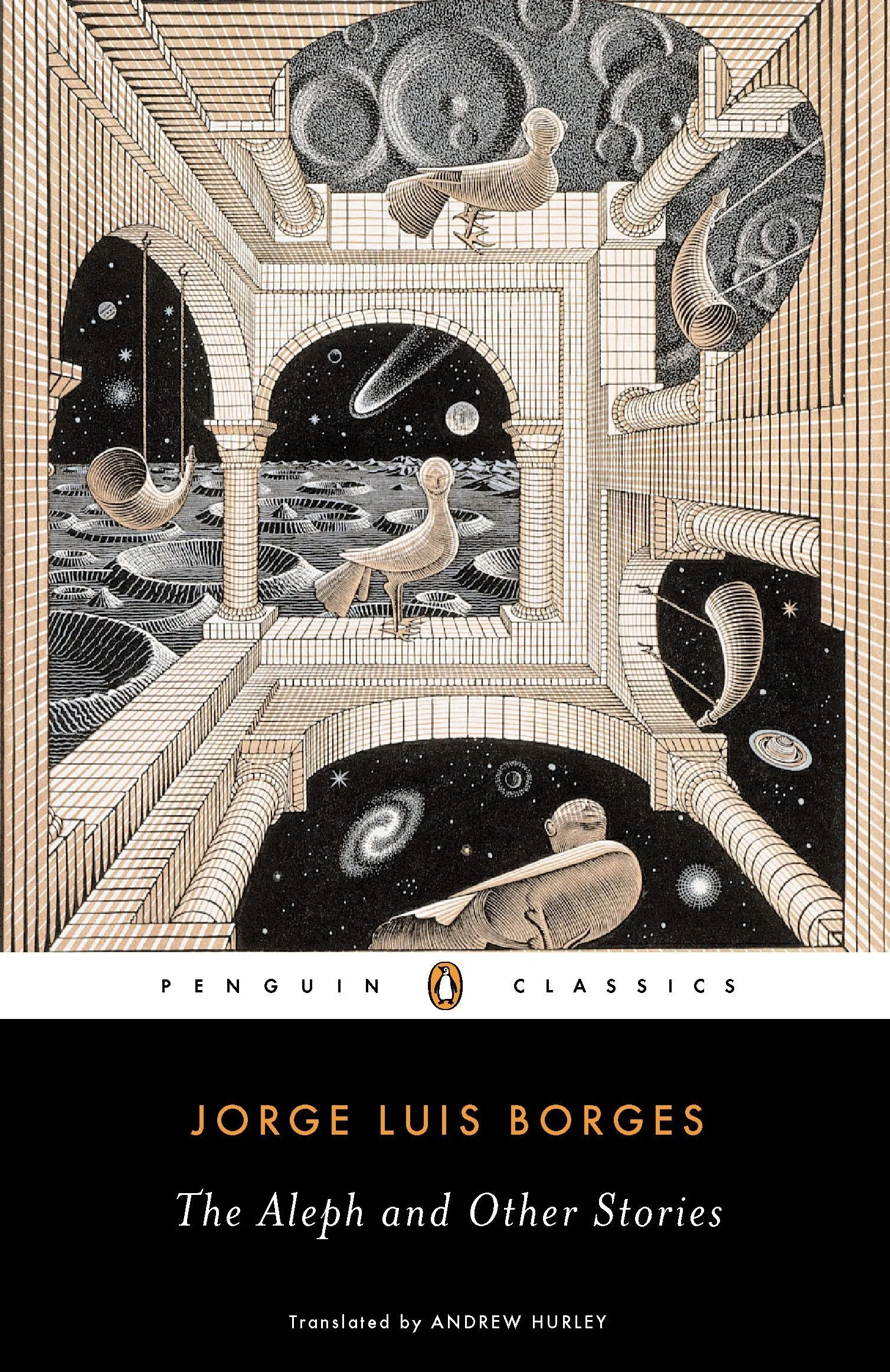
‘I view [modern man],’ he said with a certain unaccountable excitement, ‘in his inner sanctum, as though in his castle tower, supplied with telephones, telegraphs, phonographs, wireless sets, motion-picture screens, slide projectors, glossaries, timetables, handbooks, bulletins…’
He remarked that for a man so equipped, actual travel was superfluous. Our twentieth century had inverted the story of Mohammed and the mountain; nowadays, the mountain came to the modern Mohammed.
He hesitated, then with that level, impersonal voice we reserve for confiding something intimate, he said that to finish the poem he could not get along without the house because down in the cellar there was an Aleph. He explained that an Aleph is one of the points in space that contains all other points.
I saw the Aleph from every point and angle, and in the Aleph I saw the earth and in the earth the Aleph and in the Aleph the earth; I saw my own face and my own bowels; I saw your face; and I felt dizzy and wept, for my eyes had seen that secret and conjectured object whose name is common to all men but which no man has looked upon—the unimaginable universe.